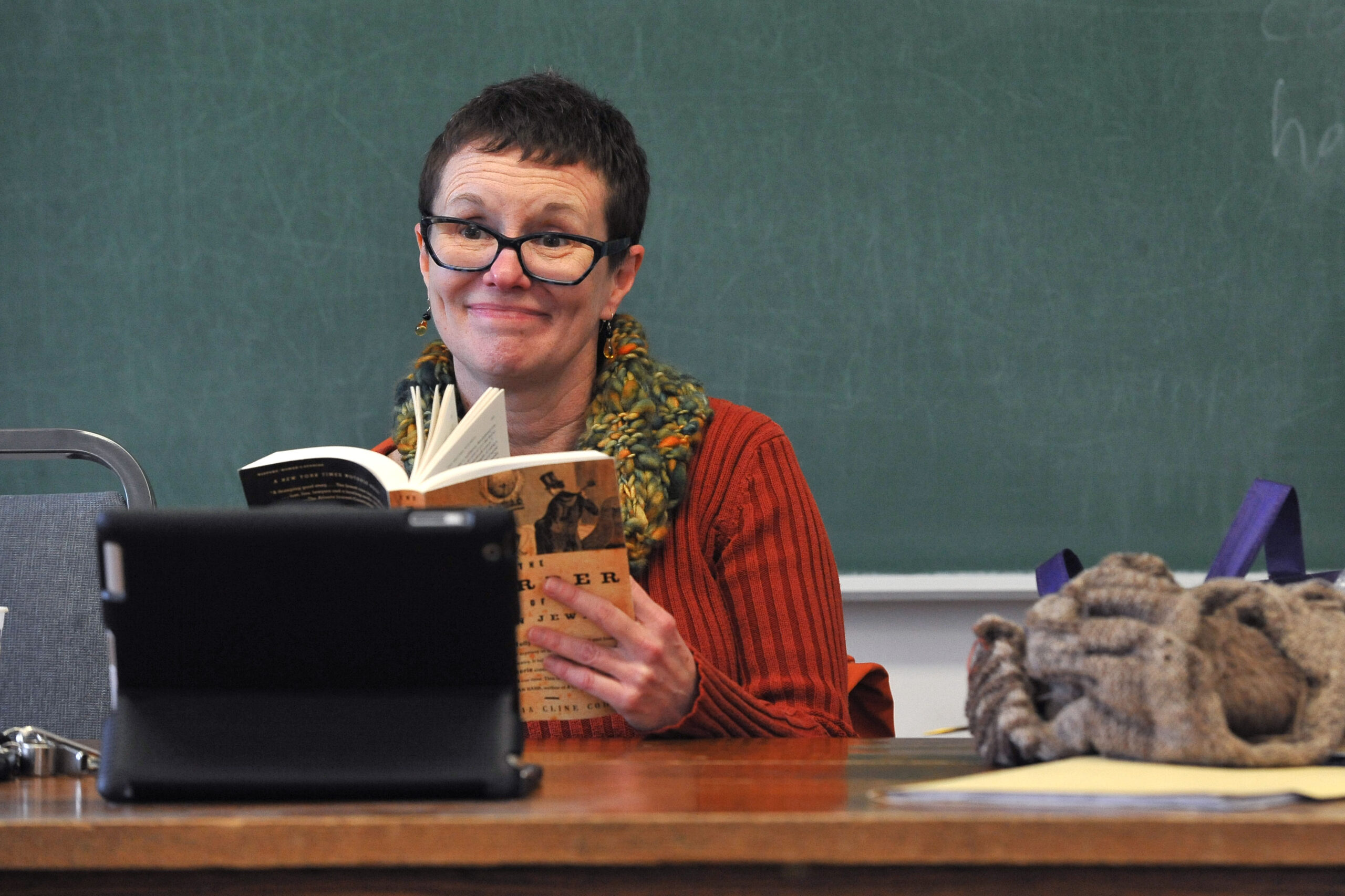Professor of History
History and Humanities Department
Contact
Email: tomasek_kathryn@wheatoncollege.edu
Phone: 508-286-3674
Fax: 508-286-3640
Website: http://kathryntomasek.wordpress.com/
Education
Ph.D., University of Wisconsin-Madison
M.A., University of Wisconsin-Madison
B.A., Rice University
About
Kathryn Tomasek has been exploring the use of digital tools to enhance student learning since 1992. She began to use XML compatible with the Guidelines of the Text Encoding Initiative in assignments requiring transcription and markup of primary sources in 2004. As part of the Wheaton College Digital History Project, students in her courses do original research with documents from the founding period of the college.
Tomasek’s research project, Encoding Financial Records, received a Start-Up Grant from the Office of Digital Humanities at the National Endowment for the Humanities in 2011. She is currently a member of the American Historical Association’s ad hoc Committee on the Professional Evaluation of Digital Publications by Historians.
Main Interests
Digital Humanities/Digital History
U.S. Women’s History
Women’s Studies/Digital Feminisms
19th-century United States
Other Interests
Tomasek spends a lot of time watching movies, reads everything from Welsh mythology to comix to high literature and a lot of stuff in between, and dances a mean Texas two-step whenever she has the chance.
Publications
Current Research and Teaching
Encoding Historical Financial Records. 2012-present. encodinghfrs.org
Doing History Digitally. 2008-present. kathryntomasek.org
Wheaton College Digital History Project. 2005-present. wheatoncollege.edu/digital-history-project/
Projects in Progress
A Grand Tour During the U.S. Civil War, a website incorporating Omeka, Neatline, and TEI/XML files.
Transactionography: Laban Morey Wheaton Day Book and Ledger, an XML test file.
Recent Publications
Encoding Historical Financial Records. With Syd Bauman. Invited. Journal of the Text Encoding Initiative [Online], Issue 6/December 2013, Online since 22 January 2014.
Encoding Financial Records for Historical Research, with Syd Bauman in Digital Humanities 2013: Conference Abstracts (Lincoln, Nebraska: University of Nebraska, Lincoln, 2013), 540-542.
Encoding Financial Records, Journal of Digital Humanities [Online], 2/2 (Spring 2013).
The Wheaton College Digital History Project: Digital Humanities and Undergraduate Research, in Digital Humanities 2011: Conference Abstracts (Palo Alto, CA: Stanford University Library, 2011), 377-379.
Digitizing Ephemera and Parsing an 1862 European Itinerary, with Zephorene L. Stickney, in Digital Humanities: DH 2010, Conference Abstracts (London: Office for Humanities Communication and Centre for Computing in the Humanities, Kings College London, 2010), 377-379.
Teaching with the History Engine: Experiences from the Field, with Lloyd Benson (first author), Julian Chambliss, Jamie Martinez, and Jim Tuten, Perspectives (May 2009).
Digital Technologies: Teaching and Expanding Access to Archival Documents, in Women’s Memory: The Problem of Sources (Istanbul: Women’s Library and Information Centre Foundation, 2009), 400-408.
Encoding Text, Revealing Meaning: Pedagogical Implications of the Text Encoding Initiative (TEI) for Teaching History at Small Liberal Arts Colleges, with Scott Hamlin, Zephorene L. Stickney, and Kathleen Ebert Zawasky, International Journal of Knowledge, Technology, and Society, 1/3 (2006): 157-164.
Duaterra’s Tattooing: Marking Bodies in Lydia Maria Child’s “Mary Howard” and The Girl’s Own Book, Letterature d’ America (Italy), 25, no. 106 (2005): 5-27.
Not a Nervous Man: Gender Anxiety and Women’s Rights in Antebellum Bangor, Maine, in Of Place and Gender: Essays on Women in Maine History, ed. Marli F. Weiner (Orono, Maine: University of Maine Press, 2005), 27-50.
A Greater Happiness: Searching for Feminist Utopia in Little Women, in Little Women and the Feminist Imagination, ed. Jan Alberghene and Beverly Lyon Clark (New York: Garland, 1999, 237-259.
Children and Family in Fourierist Communities, Connecticut History, 37, No. 2 (Fall 1996-Spring 1997): 159-173.
Teaching Interests
Historical constructions of race, class, gender, and sexual orientation in the United States
Women in North America
Sex, Work, and Culture in the Nineteenth-Century U.S.
Student Projects
The Wheaton College Digital History Project has used collaborations among faculty, students, and members of the staff of Library and Information Services to digitize primary sources related to the founding of Wheaton Female Seminary since 2005. In the summers of 2005-2008, students transcribed, encoded and proofread the travel journal and diaries of Eliza B. Wheaton. In spring 2009 and 2010, students in History 302 transcribed and encoded transactions from the account books of Laban Morey Wheaton.
Research Interests
Encoding financial records
Digital scholarship
Digital History
“making,” fiber objects, and women’s work
Using digital tools to enhance learning
